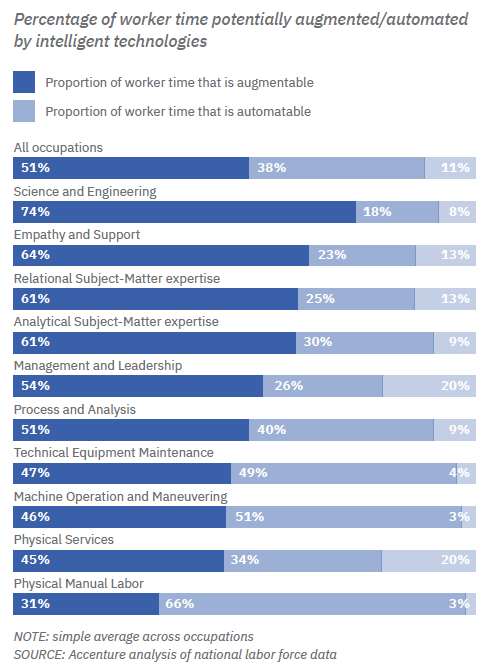Globally, the demand for manual, physical, and basic cognitive skills is declining. In their stead, digital literacy and competency are becoming requisites for a growing portion of the workforce, and the need for higher-level cognitive skills is on the rise: According to a World Economic Forum survey of employers, skills related to analytical and critical thinking, active learning, complex problem solving, and creativity will see the highest growth by 2025.

Two statistics clearly highlight both sides of this equation: By 2025 industrial robots are expected to replace as many as 2 million workers, while the need for advanced IT and programming skills could grow by as much as 90% between 2016 and 2030.
The priorities and values of today’s youth are also transforming the shape of the workforce of the future. Good work-life balance is a priority for a majority of young workers, even preceding career progression; flexibility — i.e. remote work and flexible hours — and a sense of meaning derived from work rank highly as well. Consequently, the gig-economy is on the rise: 2019 forecasts projected that global gig-economy transactions would grow by 17% each year until 2023.
